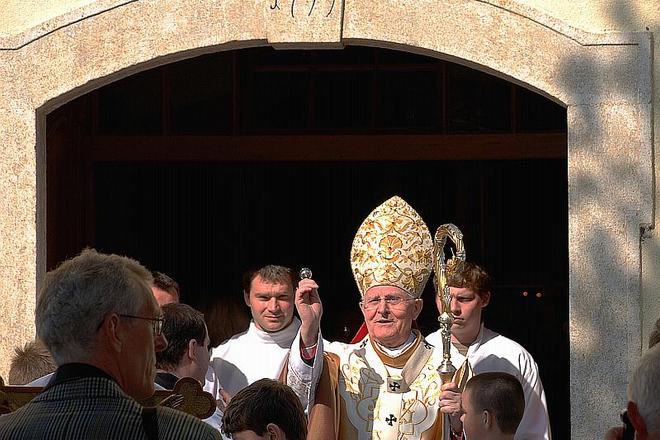SDKÚ’s deputy in parliament and a former rector of Comenius University in Bratislava, Ferdinand Devínsky, collaborated with the ŠtB communist secret police, the Sme daily wrote on April 17.
According to the daily, Devínsky was willing to collaborate because it was the only way for him to be able to travel to London for a research stay in 1986.
Following the publication of the article in Sme Devínsky resigned from the two posts he held in parliament – the chairman of the parliamentary committee for education, science, youth and sport and the reserve delegate of the Permanent Delegation of the Slovak Parliament in the Parliamentary Assembly of the Council of Europe, the SITA newswire reported.
The ŠtB had clear plans for Devínsky, Sme wrote. They went to his office to recruit him and wanted to use him as an informer during a stay in London.
“His character qualities give a guarantee that he will accept the cooperation,” two ŠtB officers, Ján Hradský and Adam Bali, wrote in their proposal to recruit him, Sme reported. According to the daily, Devínsky signed a cooperation agreement on September 1, 1986, after which the ŠtB began instructing him on how to search for suitable people for cooperation, how to gain information by eavesdropping on conversations in public places, and how to behave when he was to get his visa from the British embassy.
The ŠtB contacted Devínsky for the first time when he was a lecturer at the Faculty of Pharmacy at Comenius University in 1981. He was supposed to travel for a stay in London at that time but in the end he did not go. The second offer from the ŠtB came in 1986 and shortly after that Devínsky left for London. He remained in contact with the secret police until 1989. Sme reported that all of this information is available from Devínsky’s file in Prague.
SDKÚ chairman Mikuláš Dzurinda, in his reaction to Devínsky’s cooperation with ŠtB, said that he did not intend to act as a policeman 20 years after November 1989.
“The key aspect of the whole story is the position of Ferdinand Devínsky, who said that he never agreed to cooperate with the intelligence service,” Dzurinda said on April 17, as quoted by SITA. “I have been cooperating with him for many years now. I either trust him, or I don’t. Devínsky doesn’t hold any executive post.”
In February 2009 Dzurinda said that people who cooperated with the ŠtB should not hold high public positions and that it was shameful if they did, SITA reported.
Devínsky denied any close links to ŠtB, saying he would go to Prague in person to check the file and defend himself.



 According to the Sme daily, SDKU’s deputy in the parliament and a former rector of the Comenius University in Bratislava, Ferdinand Devínsky collaborated with the communist-era secret police. (source: TASR)
According to the Sme daily, SDKU’s deputy in the parliament and a former rector of the Comenius University in Bratislava, Ferdinand Devínsky collaborated with the communist-era secret police. (source: TASR)